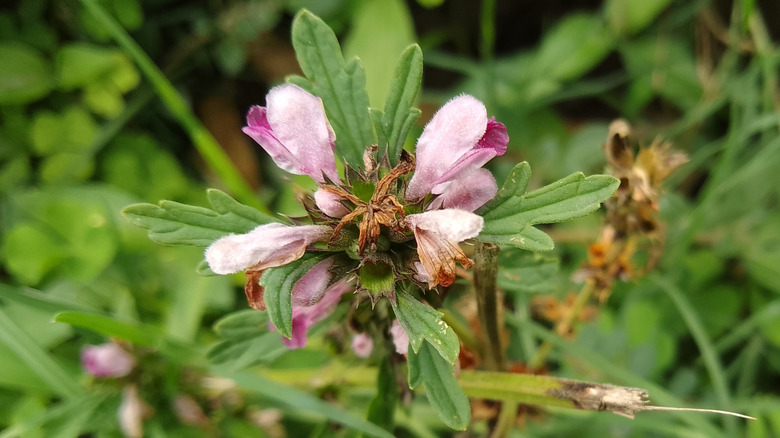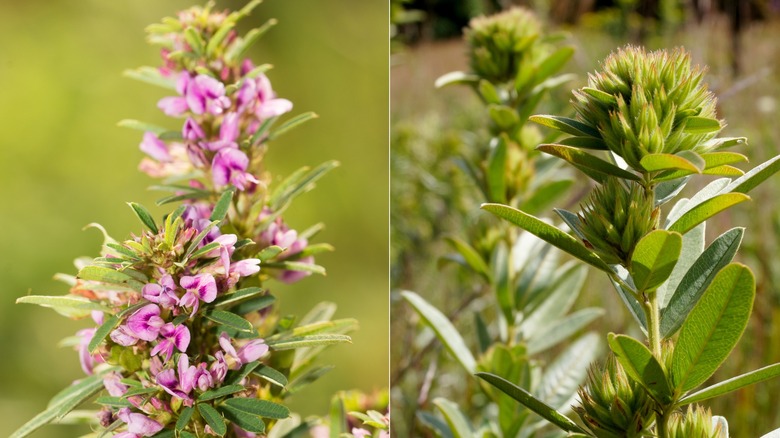Why You Should Embrace These Native Lespedeza Weeds In Your Garden
While Lespedeza cuneata or Chinese bush clover is regarded as a weed, and is listed as an invasive species in various parts of the country, including North Carolina, Oklahoma, and Illinois, there are two other species of Lespedeza that are native to the U.S. You can safely embrace these natives in your garden because they offer numerous benefits. These species are slender bush clover (Lespedeza virginica) and round-headed bush clover (Lespedeza capitata). You might be surprised to learn how similar wildflowers and weeds really are because, when in bloom, these "weeds" can attract pollinators to your garden and provide a larval food source for certain butterfly species.
Additionally, the seeds are loved by songbirds and the leaves of the plants are a food source for deer, rabbits, and other mammals. Incorporating these native perennial wildflowers into your garden is a lovely way to attract local wildlife and improve the biodiversity of your patch of land. These plants can also add to the nutrient content of your soil, because both of these species are legumes which means that they're capable of fixing nitrogen into the soil, and are exactly the type of plant you should grow to create healthier soil in your yard and garden.
Benefits of growing native Lespedeza in your garden
Being legumes, these native clover species have the unique ability to convert the nitrogen in the atmosphere into a form of nitrogen that is available to plants. Atmospheric nitrogen is unusable by plants. Legumes can fix nitrogen in the soil because they have rhizobia bacteria attached as nodules on their roots. This bacteria is what converts the nitrogen in the air into usable nitrogen for the leguminous plants, which will eventually end up in the soil — making it healthier for other plants growing nearby.
Slender bush clover can be grown in USDA hardiness zones 4 through 9, and provides an important nectar source for bees and adult butterflies when it produces its lovely pink, purple, or red flowers in summer and the fall. The plant is also a larval host for the eastern-tailed blue butterfly. Round-headed bush clover can be grown in USDA hardiness zones 4 through 8, and produces yellow or white flowers that are rich in nectar and attractive to bees, and other pollinators. This native wildflower also hosts the larvae of the same butterfly species as well as being a food source for a variety of birds. So, if you're keen to establish a gorgeous wildflower garden, you might want to explore other gorgeous wildflowers you'll want in your yard to attract birds.

